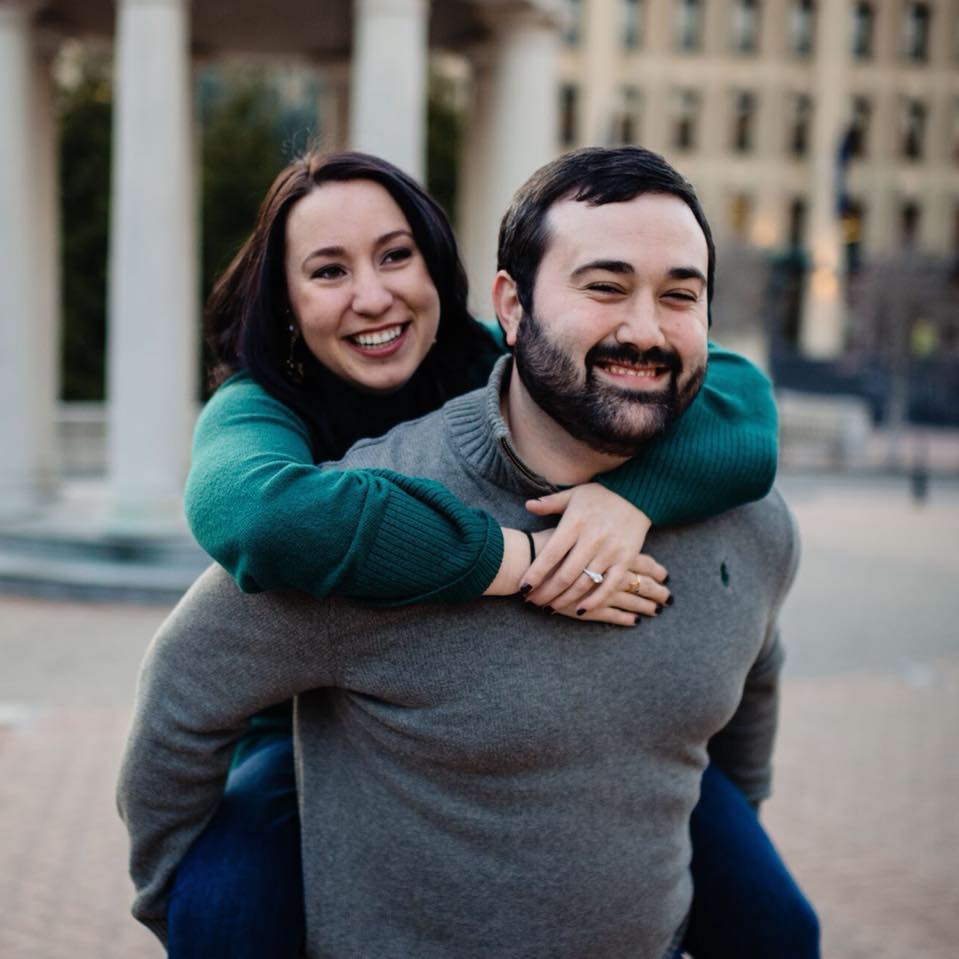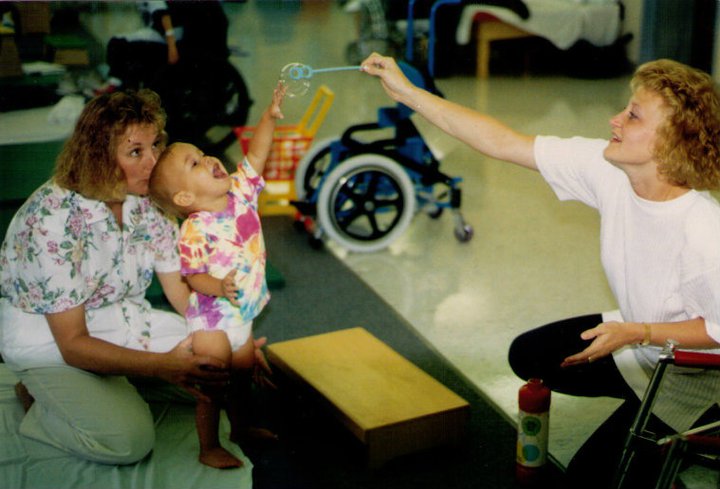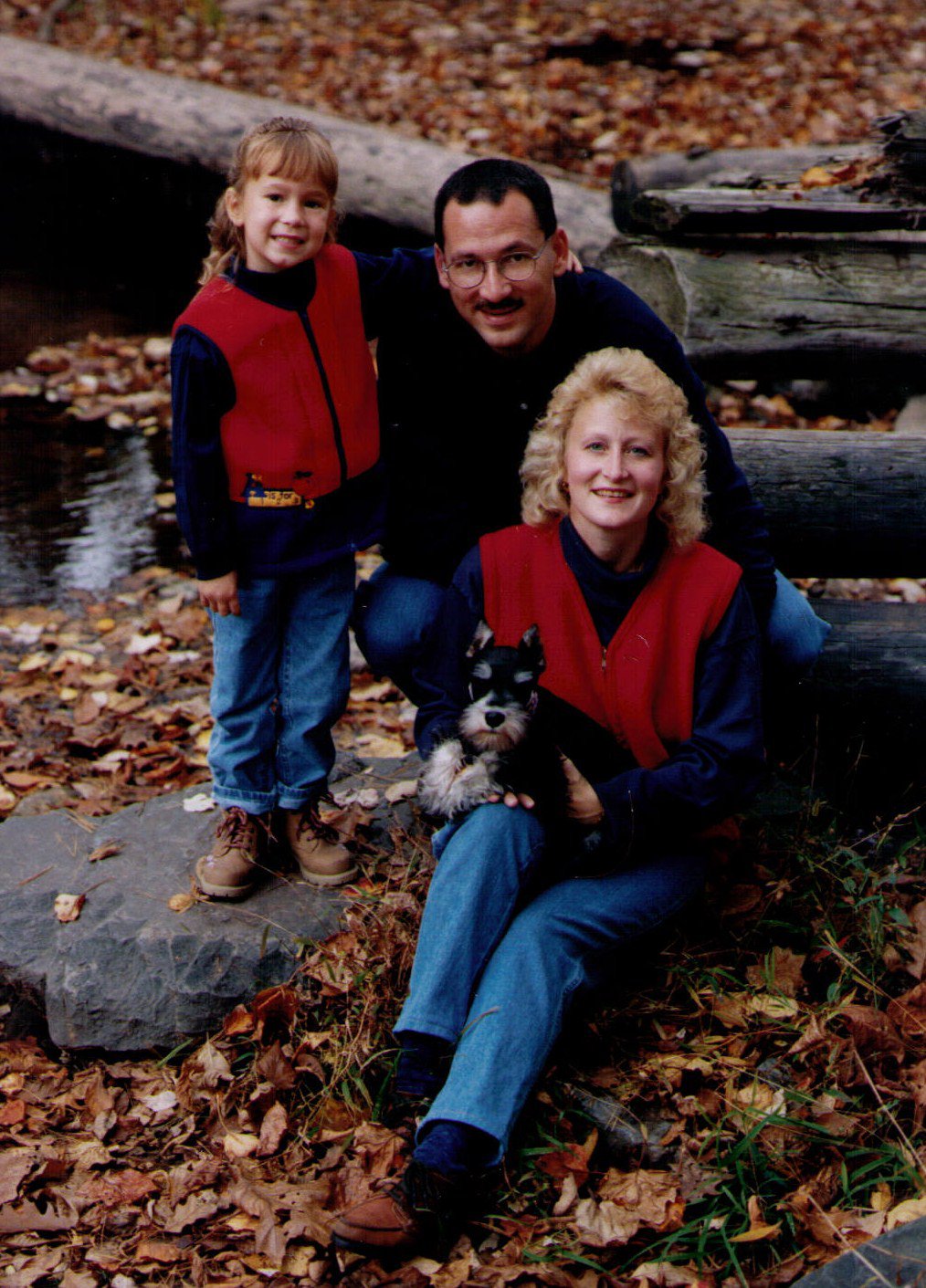Carissa L. Strohecker Hannum is a practicing psychotherapist who helps others that live with chronic pain, chronic illness, trauma, eating disorders, and mood disorders. She was diagnosed and has been living with Arthritis since she was 15 months old, you are right juvenile rheumatoid arthritis (in the 90s when there wasn’t a ton of research on what to expect)
Doctors told her that “it would get better and go into remission and there was a chance it would progress.” But in her case, it progressed and changed. She has now been diagnosed with Ankylosing Spondylitis which affects her spine, ligaments, and tendons in her pelvis. But in spite of innumerable challenges, she is married and is looking forward to developing a family.

Carrisa believes in overcoming everyday challenges, she says “My arthritis is a big part of my relationship and my husband has been a phenomenal support. My husband, Dylan, is extremely helpful to even get me to listen to my own needs and is my biggest support. My parents laid the foundation to share my needs and now I can do that in my relationship. Dylan will come to doctors’ appointments with me, and surgeries, and has chosen to support me through life’s challenges. I think everyone with arthritis deserves a relationship like this.”
Carissa L. Strohecker Hannum continues to answer questions on concerns regarding challenges, lifestyle modifications called upon, treatment options, and the role of family that seem to bother parents whose child has been diagnosed with arthritis or one who is suffering from juvenile rheumatoid arthritis
Challenges faced as a child at home and at school-

This is tough. Living with arthritis means living with an invisible illness. People will see the kid as entirely normal, which sometimes they might prefer. Other than seeing modified shoes, kids wouldn’t have any idea that I was different unless I would discuss it. I think that was really hard.
If I was out sick or even in high school, when and had to get an infusion, it can make a child feel very different or that they have to grow up fast compared to their peers. I think that is a natural reality that will happen. I found a lot of comfort in finding support groups and engaging in activities provided by our hospital for kids with arthritis. I felt very heard and understood.
With time, and explanation I had a really good group of friends in each of my phases of life that was willing to learn, listen, and realize the challenges of my illness. I think my parents and my medical team helped instill confidence in me and helped teach me how to “own” my illness.
It is okay that I have needs, that are different, and if people aren’t hearing me they probably shouldn’t be my friends. If someone was being judgmental like a teacher, my parents would be involved, but they also coached me on why they were doing what they were doing so that I could also advocate for myself in future instances, like college. It is natural for parents to want to be protective, but also encourage and teach kids to not feel ashamed, and stand up for their needs.
There is still a lot of education needed around arthritis and invisible illnesses in school systems so take the time to educate your school system and what this might mean for your kid. At one point, we actually brought a nurse into kindergarten to help teach my peers as well as my teachers what this may have meant and the parts of arthritis they may not “see” like physical therapy, splints that I had to wear, etc.
Treatment options resorted to in order to improve quality of life-

I feel like I was very lucky in terms of the medical system I grew up around. However, I was diagnosed in the 90s, so kids with arthritis weren’t much known and it was very confusing to navigate. My parents felt much challenged during this time trying to find a doctor or a solution for a 15-month-old that stopped walking and was crying in the middle of the night from the pain.
My doctor actually ran into me, my family, and my orthopedic doctor in the hallway at Penn State Hershey Medical Center, and diagnosed me on the spot/got me in for treatment with her. Her name was Dr. Barbara Ostrov and I was very privileged to have her guide me and my parents through treatment for the first 22 years of my life.
My arthritis changed types, so we had to navigate oral medications and biological medications. I also went through physical therapy numerous times/was taught how to walk again. Later in life, I started to take SSRI medications and work on my mental health, but that came in college.
I would encourage parents to have kids talk to a therapist or even talk to a therapist themselves to help with coping with the diagnosis or challenges around the diagnosis. I obviously believe in it so much that I’m now a mental health therapist myself. But, I do think that seeing a therapist as well as a stellar medical team has helped my prognosis, quality of life, and even how I view my arthritis.
Disclaimer
The Content is not intended to be a substitute for professional medical advice, diagnosis, or treatment. Always seek the advice of your physician or other qualified health provider with any questions you may have regarding a medical condition.